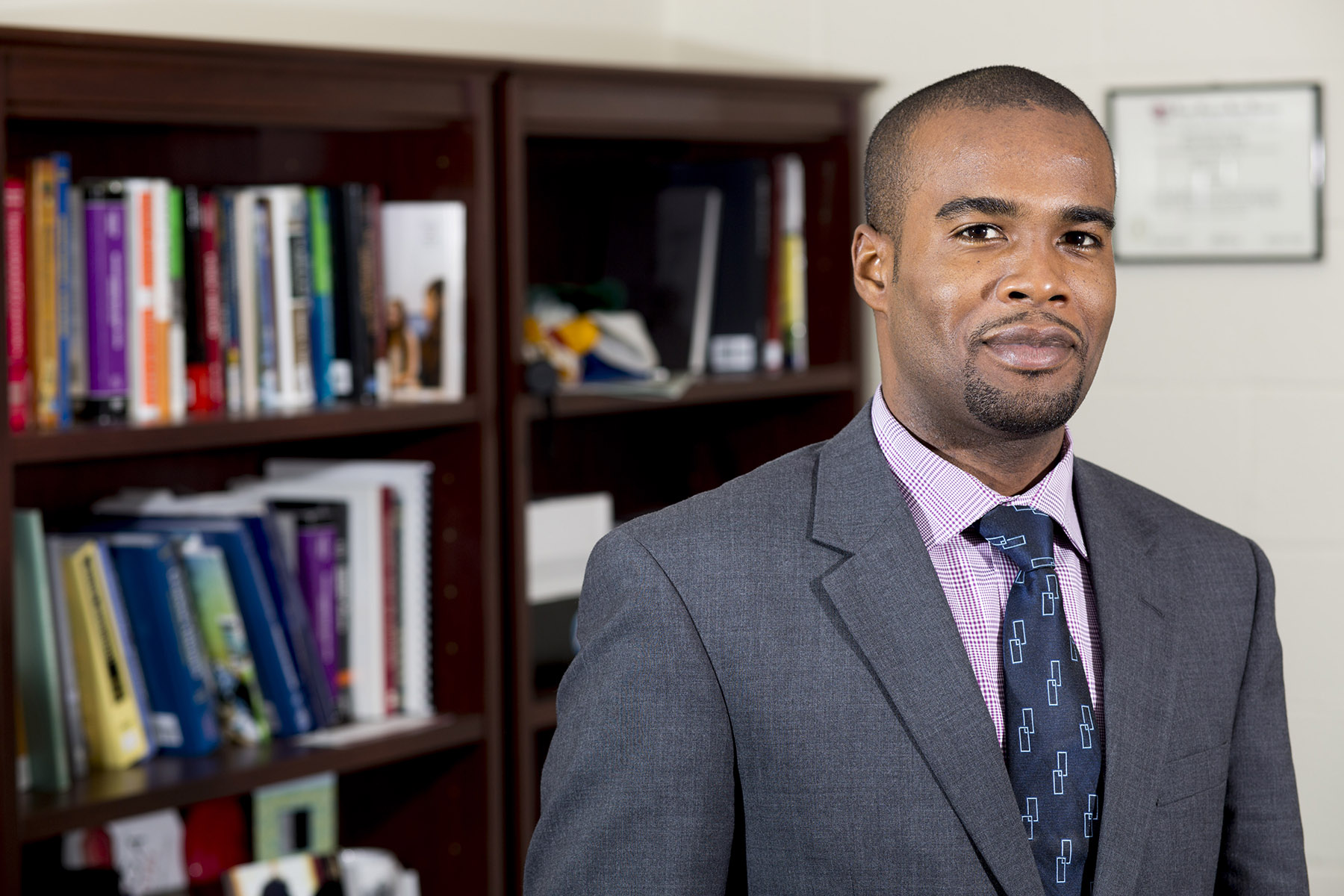FACTS
Richard O. Welsh
Assistant Professor
- Lifelong Education, Administration and Policy
- College of Education
- Ph.D., Urban Policy Education, University of Southern California, 2015
- M.A., Economics, University of Southern California, 2013
- M.A., Latin American Studies, Stanford University, 2008
- B.A., Economics with Interdisciplinary Honors in Latin American Studies, Stanford University, 2007
- At UGA: Four months
Research, teaching, and service—these are the three defining pillars that encapsulate the work of Richard O. Welsh.
His passion for analyzing the most efficient ways to enhance today’s educational system is driven by an unwavering desire to improve student achievement in the U.S. and beyond.
“The way that I look at my research is that there’s an inherent service component built into the work I do,” said the Jamaican native. “One of my main research goals is to help improve the educational system for future students so they can learn and achieve more in school.”
After graduating from high school in Jamaica, Welsh left home to pursue a degree in economics at Stanford University. While he originally intended on working in business, the death of a close friend prompted Welsh into a period of deep introspection.
“After that experience, I kept saying I wanted to do something meaningful,” he said. “I want to have a meaningful impact on the lives of people, and education is the perfect field.”
Welsh joined the College of Education’s department of lifelong education, administration and policy as an assistant professor this year, and brought with him a deep knowledge of K-12 education policy.
His extensive research on school reforms in post-Katrina New Orleans looks at a variety of issues that may redefine the future structure of Georgia’s educational model. Welsh is eager to enhance his work by combining the knowledge he gained in New Orleans with his empirical background in
quantitative research methods.
“I use a lot of student-level data provided by the district,” said Welsh. “So what the field is trying to do and what my research hopefully takes one more step towards accomplishing is trying to figure out whether or not there’s an independent effect associated with changing schools and how that varies over time.”
While studying at the University of Southern California, Welsh used student-level data from Clark County, Nevada, for a three-part empirical dissertation analyzing the impact of changing schools, or student mobility, on student achievement.
From this investigation, Welsh discovered a host of reasons for student mobility he intends to study in the future, including school accountability, school discipline and the zero-tolerance policies. In fact, his work on mobility patterns examines an area that has never been fully studied in the past.
Until recently, most student mobility studies have been focused on school choice policies and school changes that occur in the summer or between school years. In contrast, Welsh is taking a closer look at the relationship between the timing of school changes—especially those that occur during the school year—and other underlying causes and consequences of mobility, such as segregation, school discipline and achievement gaps within “traditional” school districts or those with attendance zones and district-run schools.
Since frequent school changes can have a detrimental effect on student achievement, Welsh will assess the effectiveness of certain forms of school discipline. He believes that variations across student characteristics should compel policymakers and other researchers not to adopt a “one-size-fits-all” approach to student mobility.
“It’s a surprising finding to me that a lot of discipline-related mobility occurs during the school year and that most of the prior research has not focused on during-the-school-year changes,” he said. “By not looking at what happens during the school year, we’re really overlooking a gross majority of those changes.”
For Welsh, teaching is an integral part of his research process. He wants his students to understand what’s being discovered and how that might shape the work they’re doing. As a result, he can focus on providing them with better ideas and resources for the future.
“To me, it’s a win-win situation,” Welsh said about joining the College of Education. “I can learn from students, and hopefully, I get to pass on insight to help them improve their everyday interactions with students. The ultimate goal that we all share is to improve equity and student achievement.”


